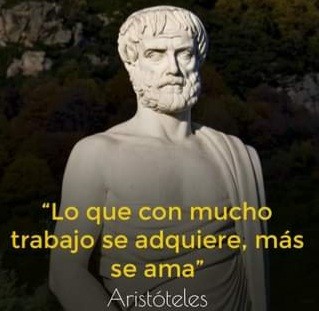Police function and the fight against corruption; they are an indissoluble pairing and indisputably constitute a starting point for professionalization in the Police, with the aim of promoting a culture of legality in police action, in order to avoid administrative or criminal responsibilities, promote institutional values and principles; as well as the moral and ethical sense.
The above has the purpose of promoting the vocation of service and the sense of belonging.
Like many countries in the world, there are also problems in the United States related to policing and corruption, such as the case of Richmond County, Georgia, where smuggling and assaults have plagued its jail, which is also overcrowded.
In some ways, the crisis in Richmond County reflects a dilemma faced by many counties in the United States and many countries in Latin America. Of course, the contracting processes and trust controls should be studied, but a National Anti-Corruption System should also be strengthened in each country, but from the Subnational level, that is, from the small institutions in charge of enforcing the law of the localities. , until it permeates the large state and federal structures, that has the capacity to detect, evaluate, adapt and improve its mechanisms, with a view to perfecting it; However, this will not happen overnight, therefore, it is imperative to increase efforts, but this must be done without falling into the temptation of insulting progress and opting for unilateral, immediate and inconsistent measures or political whims such as dismantling and disappearing police institutions that took many years and very high budgetary resources to put them into operation and choose to create new institutions from scratch, which will cost a lot of time and again, more money, and an accumulation of wear and tear to make them operate effectively, as an example we have the Federal Police of Mexico and the National Guard.
For that citizen trust to be recovered; It is important to involve their active participation with the institutions in charge of enforcing the law, in this sense, citizens should monitor the results of the security service through surveys and audits through Subnational Citizen Councils, that is, create small citizen councils in all small towns and at the same time, create citizen councils at the state level and a federal citizen council. Thus the three of government; They would have broad citizen participation, with access to actions to combat corruption, which would encourage the elements that make up security institutions to be better every day. Being better means appreciating the challenges that social demands today demand from public servants and that are identified with greater force, when the scope of the task is enunciated in the noble task of Security.
For this reason, speaking of excellence in service means unrestricted adherence to current positive regulations. It is total observance of respect for Human Rights; as well as Legality, Honesty, Objectivity and Professionalism in each of the acts that are carried out. From there; that a quality behavior in the field of Public Security, must be registered in the criteria of zero corruption, understood as the decomposition of ethics and morality that leads to situations that denigrate the public servant who commits them and that conditions damage direct not only to those who are affected, but to the entire universe.
Thus; Knowing the Guiding Principles in Police action must be an inherent condition of its exercise.
From there; the importance of locating how a principle of value is generated and under what criteria this exercise, even leads to the happiness of whoever performs it with the authentication of their acts, the self-government of their work and the continuous self-direction towards excellence in proceeding and quality in serving to protect the community.
The Axiology; It is the part of philosophy that deals with value. A value is something that society considers useful and precious. It is an element that is recognized and estimated at a high social level due to the magnitude of the results it offers in favor of the environment.
Within Axiology the following is conceived:
• Ethics and
• Moral.
Deontology studies the set of principles and values that allow us to locate:
• The duty to be and procure the good and
• Avoid the absence of good in our actions.
For Aristotle, man’s tendency towards happiness was oriented towards the good.
Aristotle in chapter 1 of his book 1 entitled “Nicomachus Ethics”, pointed out:
“All art and all scientific research, as well as all action and choice, seem to tend to some good…”; and for this reason, the specific good of each element must be defined with all precision, what they said to be of what all things aspire to, which is the ultimate good of man, happiness.
Aristotle commented that there is not a single end, since there are many actions and he quoted:
“As actions and arts and sciences are in great number, many will consequently be the ends. Thus, the end of medicine is health; that of shipbuilding, the the navegation: that of strategy, victory, and that of economics, wealth” (“Nicomachus Ethics”, book 1,1).
In this way, it is stated that the purpose of the Police is to “Protect and Serve the Community.
For this reason, if a Police officer performs the functions that correspond to him, on a daily basis, in accordance with the principles and values that distinguish him, he will act well and be virtuous, otherwise, he will corrupt his exercise. This derives from the fact that he will act by “custom” in accordance with the norm and his action will condition the fulfillment of an end, which is directed towards a good. Well, that transcends the quality of life that translates into security.
In order for this to be expressed, it is therefore required to fulfill the qualities that frame the following words:
• Availability,
• Constancy and
• Sincerity.
That can also be enunciated through authentication, self-control, self-government and personal self-reengineering.
In such a way; According to Aristotle, virtue is…
“Virtue is, therefore, a selective habit, consisting of an intermediate position for us, determined by reason and just as the prudent man would determine it. Intermediate position between two vices, one by excess and the other by default. And so, some vices sin by default and others by excess of what is due in passions and actions, while virtue finds and chooses the middle ground. Therefore, according to its substance and the definition that expresses its essence, virtue is average, but from the point of view of perfection and goodness, it is extreme. (“Nicomachean Ethics”, book 2, 6).
Aristotle elaborates on the subject and points out that it is required to reach the ultimate goal of man; states that three conditions must be met: volition, deliberation and decision. There is a beautiful story within Greek mythology, which allows us to exemplify the reason for these three conditions, since it expresses in a euphemistic way how the interaction of the soul, being and reason in the person is presented. The story is called: “Psyche and Eros”….
The narrative begins when a king and a queen had three daughters. The smallest was distinguished for being the most beautiful and intelligent of the sisters. Regarding her, the oracle had indicated that she would marry a monster and die. Added to this prophecy, since her beauty was the cause of Aphrodite’s jealousy. This deity sent his son Eros, so that the beautiful Psyche would be touched by one of his arrows and fall in love with the most fearsome monster on earth. But when Eros, also called Cupid, saw Psyche, he fell in love with her beauty and accidentally pricked himself. In this way he fell totally in love with her. Eros was so passionate about Psyche that he requested help from Hermes who, considered the god of light and truth, drove away all suitors so that Psyche remained single.
Psyche’s parents were disturbed by the absence of a man who would request her in marriage, they asked Hermes for help, who, remembering Eros’s request, told them that they would take her to a mountain so that a god would marry her. Psyche’s parents obeyed and although it caused pain in both of them, they complied with the indication of the deity. They took Psyche to the top of the mountain in tears and there they said goodbye to her. Psyche from crying so much fell into a deep sleep. When he woke up he found himself in a wonderful garden in front of an extraordinary palace. There he heard a voice that told him that the Palace belonged to him and he could occupy everything that was in it.
Every night she heard the same male voice, which greeted and encouraged her, so much so that she fell in love with the voice and agreed to marry him. Her husband asked her as the only requirement that they only see each other at night and that she never turn on the light to see him. And he warned her that if her curiosity ever got the best of her, they would both be separated forever, because where there is love there should not be distrust. This is because Cupid did not want his beloved to know that he was a god. And he longed for her to just fall in love with him at his core through his voice. At first it was like that, and they remained for a long time in total harmony. But Psyche wanted to know about her family. She asked her husband for permission to return to the top of the mountain and by a magical pass to allow her sisters to see her. Cupid agreed and so it was. However, when her sisters arrived and appreciated all of Psyche’s goods, they became envious and badly advised her. They told her that if her husband didn’t want her to see it, it was because it was most certainly the monster of the prophecy and that she had the right to see it.
After planting the poison, the sisters and Psyche returned to their homes. Psyche decided to see her husband, she prepared an oil lamp, and when it was almost dawn she lit it with great care, her surprise was greatest when she realized that Cupid was her husband!!! Out of nerves he stumbled and spilled a drop of oil on Cupid’s wing, who upon finding himself discovered decided to leave. Psyche went into total depression. Meanwhile, when Aphrodite found out what had happened, she decided to lock her son Cupid in a cage so that he would not see Psyche again. Psyche asked the gods for help.
They told her that she should apologize to Aphrodite, Cupid’s progenitor, since she had unknowingly offended her.
So Psyche decided to go to Aphrodite and ask her for help to return to her beloved. At first Aphrodite despised her. Then he decided to put three tests humanly impossible to meet.
The first was to build a pile of seeds, this challenge was so hard that Psyche began to cry and the little ants took pity on her and helped her. With the support of these small insects, Psyche devised a plan to attract, transport, accommodate, and present the seeds. This allowed him to learn that the alchemy of love was what helps classify and order feelings, emotions, priorities and goals. As well as the importance of reasoning being supported by intuition.
The second challenge was given to him when Aphrodite realized that he had accomplished separating the seeds. This consisted of bringing before the goddess the golden hairs of the rams of the sun that lived disputing the domain of the herd. To achieve this new challenge, the god Helios -god of the sun- took pity on her, who made his rays descend and with the sunset allowed to detect that in the bushes there was an abundance of hair from the beasts. At night, Psyche managed to collect them. In this way, Psyche understood that cunning is better than confrontation, negotiation than competition, and intelligence than force. And he appreciated that he used the best moment even though it was the last of the day. What it meant as a teaching, that there is always an optimal moment for each element. In addition to understanding that you have to know when to act soon and when to let things take care of themselves.
Aphrodite was amazed at Psyche’s tenacity. He imposed a new challenge, perhaps totally impossible, to fill a glass container with water from the rivers of the underworld. Psyche had already learned, she used her intuition, she waited for the right moment and she used her intelligence. He considered that instead of going down to the underworld it was better to go up the mountain since a waterfall fell from it that gave flow to the rivers of hell. He headed for the mountain, but when he arrived, he observed that there were guardian dragons of the top. Steep and dangerous peak, but his mind focused on the goal and wanted to find a way… suddenly Zeus himself (the great God in Greek mythology) appeared to him in the form of an eagle. The eagle took the bottle from him and walked away.
But Psyche did not lose hope… shortly after, the eagle arrived with the bottle full of water that Aphrodite requested. This new Challenge showed human reason that the impossible is achieved when it is clear what is desired, what is wanted. There is a very beautiful phrase about it and it points out: that when someone wants something strongly, the universe conspires in their favor.
However, the challenge continued and Aphrodite was relentless, she then put up a great challenge, asking Psyche to descend into hell and collect the ointment of beauty from Persephone. In order to achieve this new test, Psyche received the following advice from the Tower of her castle: that by carrying two coins in her mouth, one for the outward journey and the other for the return journey, the ferryman would move her without having to be dead. He also had to carry a piece of bread in each hand, to feed the three-headed dog at the entrance twice. Take care not to help the man with a disability in his leg to pick up fallen firewood, avoid saving someone who will drown, ignore the help offered by the dead so that she will get down from the boat and finally not open the jar and return immediately when having it.
All of the above instructed Psyche NOT TO BE DISTRACTED FROM HER GOAL. Which implied prioritizing. Since as an individual goal it promotes individual growth. And growing in a personal way can be offered to the couple to promote balance. Psyche, encouraged by the achievement of her goal, fulfilled to the letter what the Tower of her Castle had indicated to her. But feeling very attracted to appear totally beautiful before her lover, thinking that her beauty had been altered… in a moment of emotion… she opened the bottle… this one. It was empty! This was a new lesson for Psyche, beauty is achieved with what has been lived, with what is experienced, even with what is suffered. Psyche fell into torpor and without turning back she would reach death…
Eros, meanwhile, found out about everything that had happened with Psyche and what was happening to her, and since she had recovered from the burn on her wings, she escaped. from the cage in which his own mother Aphrodite had imprisoned him. He flew to Ades to rescue Psyche.
He shot one of his arrows, woke up Psyche, took her to Aphrodite to give her the bottle. Aphrodite recognized Psyche’s learning and with the help of Zeus, Psyche became a goddess, married Eros and they had a beautiful daughter named: Hedoné… which means… Pleasure, which is synonymous with Happiness.
This story resides in the humanization and expression of the spirit. It shows that from the combination of the soul and love, derives fullness, well-being, happiness.
Will, deliberation and decision were key for Psyche and Eros to consummate their love.
His effort overcame the challenges. It is said that intelligence is blind because it follows the will. And the will is the force that transforms. Will without deliberation, has no results. And if the decision is added to the will and deliberation, great goals that transcend are obtained.
And all of this is consummated to ensure that each subject expresses to his maximum potential the act that allows him to formulate his own nature and also achieve his goal.
The fourth era in which we live strongly demands living these values in police action. This derived from the fact that the security of the 21st century is an area:
• Expanded
• Multidimensional
• Comprehensive
• Global
Both Public, Private, National and Human Security refer to actions aimed immediately and directly at maintaining harmonious coexistence, at its different levels. In which a state of well-being, integrity, stability is finally achieved and that this impacts the sustainable and sustainable development of our Western Hemisphere and why not say so of the world.
Thus, the security of the 21st century is:
• A permanent action.
• It is related to human development.
• And that security, if we locate it from the area of security of each individual, can be linked to the state of happiness of the same.
Communities that feel safe are perceived as having adequate development.
Thus, the security of a nation has an impact on the quality of life. And the quality of life is linked to the feeling of a community of peace. And Peace is associated with joy.
And to achieve Peace, a group of people who, in communion with ethical principles and values, fully serve their community, are required, even at the risk of their own lives.
Therefore, committed, responsible public servants, but above all with a high concept of their work, not out of obligation, but as a means for their own personal encounter with happiness.
Although it might be thought that Aristotle rejects other goods, it is not so.
The great thinker explains that material goods are required to remain at strong.
And that it is in this space where contemplative activity can be developed.
This contemplative life is the best, and the most divine, the supreme virtue will be wisdom.
Since it is through wisdom the means by which perfect happiness is achieved.
So that:
• The man who cultivates wisdom,
• That develops his spiritual energy,
• He who cultivates his intelligence and
• Who rises to the contemplation of the greatest and most divine things.
• In short, the subject that dedicates himself to philosophy, so
• The happiest man will be the philosopher.
Philosophy must be understood as the set of sciences that is dedicated to ultimate causes, in the light of natural reason.
And the reason of man cannot be explained without assuming the concept of the soul.
Trying to address the psychoaffective factors that constitute man, is to first visualize the organic conformation of the subject and its integrity. Especially at the level of the complex biochemical mechanisms at the neuronal and cerebral level. And this psychoaffective aspect not only depends on the organicity and its integrity in conformation and operation, but also on the process of socialization, acceptance and adaptation of norms, as well as the subject’s education. It is also influenced by customs, traditions and social habits. And if it is appreciated in particular, even by religion and family integration. Much of the emotions are generated through the process of socialization. And this process is inherent to the gender and age of the subject.
Hence, the acquisition of knowledge, habits, customs and the increase in skills, the human being presents a behavior with a greater tendency to adapt. Therefore, everything that alters the emotional area will result in a behavioral modification. Socialization is dynamic, complex and unfinished, because it occurs transversally to all human activities. And like the two factors mentioned above, -biological and psycho-affective- it is interrelated with them. You cannot talk about socialization without psychoaffectivity. And both factors depend on the biology or organicity ad integrum of the being. Therefore, socialization is the sublime expression of psycho-affective harmony and functional anatomical integrity of being. It also talks about the types of socialization:
• Primary. That is located strictly in the family environment.
• Secondary. Which corresponds to the introduction of the individual to society.
• Tertiary. At this stage, the individual, after having adapted socially, has to reengineer his behavior parameters.
This type goes hand in hand with the elderly. Gender socialization should also be added. This aspect is very important in the generation of attitudes through which the subject relates. Today we know that you can learn to be happy.
That the structure of the human being has the mechanisms to achieve it.
And that each being can achieve happiness based not only on adequate knowledge of its own structure, but also with practice.
Currently there is a new gold rush and it does not refer to material issues, but to the treasure of happiness.
Understood as an abstract, subjective concept that does not have an easy definition to express.
At present, even at Harvard, “happiness” is taught as a subject in the area of Psychology. Israeli doctor Tal Ben-Shahar specialized in Positive Psychology, which he himself defines as “the science of happiness.” Tal Ben-Shahar affirms that joy can be learned.
Ben Shahar, affirms that: “you do not have to be perfect to lead a richer and happier life” He points out regarding the question: Is one ever enough happiness? That… “it is precisely the expectation of being perfectly happy, which makes us less so” In this appreciation he agrees with the Spanish psychiatrist Dr. Miguel Gaona, who points out that happiness manifests itself at this time as a “requirement” expresses that the People assume that “they have an obligation to be happy, and if they are not it is because something happened.” The problem with all this is that since there is no clarity in the concept of happiness, people assume themselves to be unhappy, since they do not even understand the why and wherefore of this definition.
For Ben Shahar, “accepting life as it is will free you from the fear of failure and perfectionist expectations.”
Ben Shahar, performs his activity in the Psychology of Leadership class (Psy- chology on Leadership). He visualizes happiness as a total process of acceptance of his own being and condition.
And it is incredible that to understand this concept, we must go back to Aristotelian thought. Aristotle… myth or reality… his characterological origin underlies the essence of his thought. And in the history of his philosophical conception in the axiological field, he stands out for his great work dedicated to his son Nicómaco with the sole purpose that the latter manages to find the maximum expression of his potential by locating what leads the human being to happiness.
Due to the above, the exercise and commitment to the values that the Police delineate as suitable for its members, communicate directly with the generation of good. And this good, expressed in a daily way, will be located as a habit. And a habit towards good practiced continuously, prevents corrupting the being and promotes quality, which is synonymous with well-being.
The anti-corruption policy is a flag that is not fashionable, it is a specific requirement, in no way conjunctural, and it is the internal control bodies that must push firmly to dismantle the swarms and networks of corruption, impunity and opacity that exist in the public organizations, today it is not easy to ensure or guarantee that an institution is free of corruption, let’s start by recognizing it and acting accordingly.
All countries must be committed to contribute to the effectiveness of an honest public service, committed and with a sense of service to the citizenry, and through forceful and exemplary actions, generate trust and credibility in the public function, by reporting on the results and promoting adequate accountability.
Promote and encourage the participation of society in the fight against corruption, transparency and accountability regarding the management of the institution in which it is attached, is a pending task.
Finally, a strategy with a global vision is decisive and necessary, therefore, agreements or international legal instruments must be signed with other police institutions, not only from the three levels of government, but also with national and foreign non-governmental organizations for the performance of their powers, and promote treaties and agreements with partner countries to involve their security institutions with each other, creating a large global network that can collaborate and provide assistance to the police of other countries when required and within the scope of their competence, always respecting sovereignty national.








